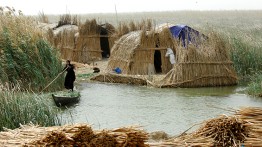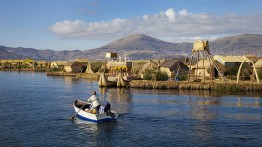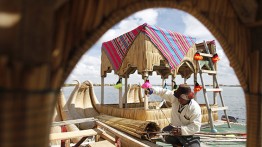Visiting Lecture | Julia Watson: Design by Radical Indigenism
Tuesday, January 26, 2021, 6:30 - 8:30pm
This lecture will be conducted through Zoom. Please register in advance here. Zoom account registration is required.
Three hundred years ago, intellectuals of the European Enlightenment constructed a mythology of technology. Influenced by a confluence of humanism, colonialism, and racism, this mythology ignored local wisdom and indigenous innovation, deeming it primitive. Today, we have slowly come to realize that the legacy of this mythology is haunting us. Designers understand the urgency of reducing humanity’s negative environmental impact, yet perpetuate the same mythology of technology that relies on exploiting nature. Responding to climate change by building hard infrastructures and favoring high-tech homogenous design, we are ignoring millennia old knowledge of how to live in symbiosis with nature. Without implementing soft systems that use biodiversity as a building block, designs remains inherently unsustainable.
Lo-TEK, derived from Traditional Ecological Knowledge, is a cumulative body of multigenerational knowledge, practices, and beliefs, countering the idea that indigenous innovation is primitive and exists isolated from technology. It is sophisticated and designed to sustainably work with complex ecosystems. In four chapters, "Mountains, Forests, Deserts, and Wetlands," this book explores thousands of years of human wisdom and ingenuity from places like Peru, the Philippines, Tanzania, Kenya, Iran, Iraq, India, and Indonesia. We rediscover an ancient mythology in a contemporary context, radicalizing the spirit of human nature.
Julia Watson is a landscape designer, an educator and a leading expert in the field of Lo-TEK nature-based technologies for the built environment and climate-resilient design. Her best-selling book with Taschen, Lo-TEK: Design by Radical Indigenism has been featured in The New York Times, The Guardian, Monocle, Architectural Digest, and more. Regularly teaching at Har-vard and Columbia University, Julia’s studio work involves landscape and urban design, along with consulting with brands on sustainability. In her studio, she collaborates with horticulturist Marie Salembier as Watson Salembier, with a focus on rewilding.
Julia has written for Topos, Landscape Architecture Frontier, ioARCH, Kerb, Water Urbanisms East and co-authored A Spiritual Guide to Bali’s UNESCO World Heritage. She’s a 2020 TED speaker, and a fellow of Summit REALITY, Pop!tech, & The Christensen Fund.
The presentation will be followed by a conversation and Q & A with respondent Elisa Iturbe.
This event is free and open to the public.
View the full Spring 2021 Lectures and Events List.









